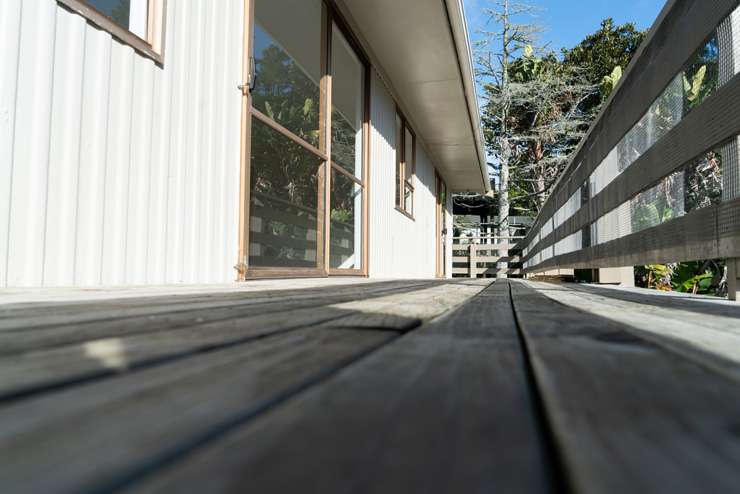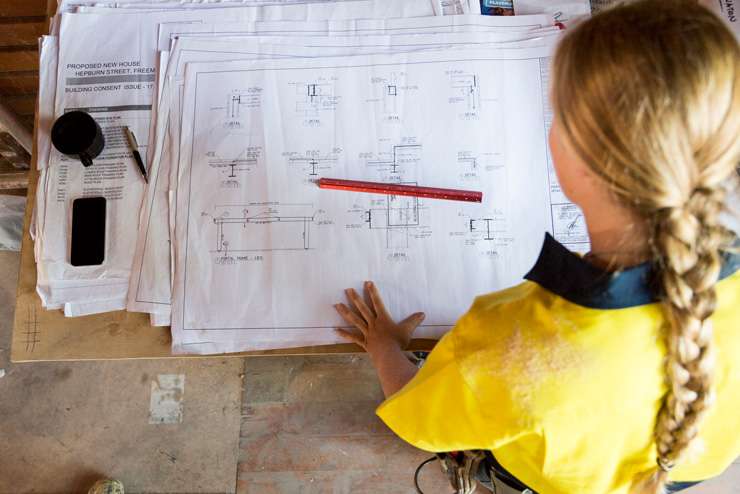Homeowners who try to sell properties with unconsented works could be losing hundreds of thousands of dollars. Something as simple as an unconsented deck or ensuite may mean potential buyers can’t get mortgages, wiping out competition.
Astute cashed-up buyers can seek discounts as high as 20-30%, says Bill Cartwright, a licensed building practitioner and consultant for Guardian Housing Services Limited, who advises on unconsented properties.
Homeowners have four main options when it comes to unconsented works:
- Remove the unconsented works,
Start your property search
- If the works are pre-1992, get a safe and sanitary report from a qualified inspector,
- For post-1992 work, apply for a certificate of acceptance (CoA), or
- Rebuild the offending works with building consent for new work combined with a CoA.
Cartwright says he comes across examples regularly of buyers and sellers being given incorrect information about their options by real estate agents. Many are led to believe it’s just a formality and they can apply for retrospective consent or letters of acceptance.
To make it worse, buyers who turn to Facebook groups looking for “advice” are often fed misinformation as well.
Cartwright regularly attends real estate agents’ weekly meetings in an attempt to educate them about unconsented works “but I still get real estate agents ringing me up asking for ‘codes of acceptance’, ‘letters of acceptance’. Or they get the Code Compliance Certificate [CCC] mixed up with a certificate of acceptance. Some of the conveyancing solicitors' terminology makes you cringe as well. It just goes on and on”.
Even if homeowners understand they need a CoA, there is no guarantee they’ll get it. It’s not a formality. Cartwright says the issue has become worse in the past three to five years. “When the market was booming, banks were more keen to lend, but are now paying more attention to unconsented works. The goalposts have been moved,” he says.
Read more:
- Tiny town's local legend ‘serious’ about selling his home of almost 70 years
- TV reno champ hits the jackpot with super-fast makeover of 'nasty' Otara rental
- $1 reserve apartment sells ... for just $1
Buyers and sellers are often unaware that an application for a CoA is also forwarded to town planning departments to determine if resource consent is needed in addition to the CoA, he says. That assessment can take weeks or months, by which time the home has sold.
“I've had situations where the certificate of acceptance for the building work has been approved and the new owner is happily living in the house and gets a letter in the letterbox one day saying, ‘hey you can't have that kitchen down there because the zoning does not allow for a second minor household unit on the property’.
“I had a client not too long ago in Herne Bay where the CoA for the building work for [replacement] windows was not a problem. The new owner got nailed because it was a heritage protected property and you weren't allowed to alter the outside of the house. They had to go for a resource consent and that cost [more than] $30,000.” Sometimes it’s cheaper to remove the unconsented works, says Cartwright.
The most common unconsented works that Cartwright sees are ensuite bathrooms. Even if it’s a well-built modern ensuite it can be very difficult to get a CoA because council inspectors can’t see what’s beneath the surface.

A deck that doesn’t have consent could end up costing a homeowner dearly when it comes time to sell. Photo / Getty Image
“Unfortunately, if you don't have the paperwork from the water-proofer, and the tiler and the plumber and the electrician, it's pretty much a no go.” Depending on the style of home, ripping out the ensuite and rebuilding, can cost tens of thousands of dollars, he says.
Other fish-hooks include decks built over overland flow paths, and plumbed sinks, which could be used as kitchens.
Cartwright recommends buyers obtain copies of the council file as well as the Land Information Memorandum (LIM) for properties they are looking at. The difficulty is that this can take weeks and sometimes doesn’t come through before the auction.
For sellers, failing to address unconsented works can be an expensive mistake. All too often the issues come to light shortly before the auction, meaning that only cashed-up buyers are in the running, says Cartwright.
“A cash buyer is usually a person that's quite astute, and they will want a good discount.” Cartwright doesn’t always see the end result on the price of the home, but it can be 20% or 30%. On a million dollar home that can be $200,000 to $300,000 discount.
Large councils receive hundreds of CoA applications every year. For example over the past year Christchurch City Council received 288 applications and approved 210. Of the applications, 54% were for changes or additional toilets, showers, sanitary fixtures, 21% for alterations such as re-levelling, re-cladding, decks and louvres. Other applications were for solid fuel heaters, subdivision drainage, new outbuildings, and internal wall removal.

Check all your paperwork is in order when it comes to showing alterations have been signed off and are code compliant. Photo / Getty Images
Of those that weren’t approved, some are on hold and some owners chose to remove the works, says Robert Wright, head of building consenting at Christchurch City Council.
Some homeowners will be working to rectify the work.
Wright points out that the CoA process is more expensive than getting the building consent in the first place. As well as CoA fees, the applicant must also pay the equivalent of the building consent fees that would have been charged. That can more than double the council costs.
“If the reports or the COA processing identifies non-compliant work or work that needs remediation then a building consent may be required [as well]. This could be processed alongside the COA,” says Wright. They also need to pay building costs.
In the case of safe and sanitary reports provided by experts for works prior to 1992 Christchurch City Council appends the report to the LIM. The works aren’t inspected by the council, says Wright.
Ray White Mt Albert agent Anne Duncan says vendors are always asked about unconsented works. If such work is identified she will recommend a report from an expert, and if possible get a CoA before going to market.
“Sometimes it’s a simple fix. Sometimes it might be [a vendor] whose husband has died and she’s lived there 30 years and she’s in her 80s and she’s not able to [fix the issue and get a CoA].” In a case like that, the property will be listed with appropriate disclosures.
Every situation is different, says Duncan. Sometimes the unconsented works are minor and the insurance companies and banks will accept the situation. However, first-home buyers tend to be very nervous of unconsented works and buyers at any stage of their property journey often look for a discount.
That discount can vary from nothing, if it’s a builder buying who can sort out the issues, to up to 50% for a leaky home without a CCC, says Duncan. A more typical discount might be 10%, she says. On a mid-range $1.5m home in Mt Albert could add up to $150,000.
Duncan says that some homeowners are surprised when they find out about unconsented works. One recent seller had an ensuite built by a reputable bathroom company, just to find the consent was never sought.
First-home buyers wanting to borrow more than 80% are very unlikely to get a loan on a home with unconsented works unless it’s “ready saleable”, says mortgage adviser Lisa Meredith of Loan Market.
“The biggest issue with unconsented works is for the bank to understand what work needs to be done to get consent, at what cost, and how clients will pay for it. However, the most important part is that it needs to be able to have insurance cover with no exclusions. If you can't get full cover then [banks] usually won't lend.”
- Click here to find properties for sale











































































